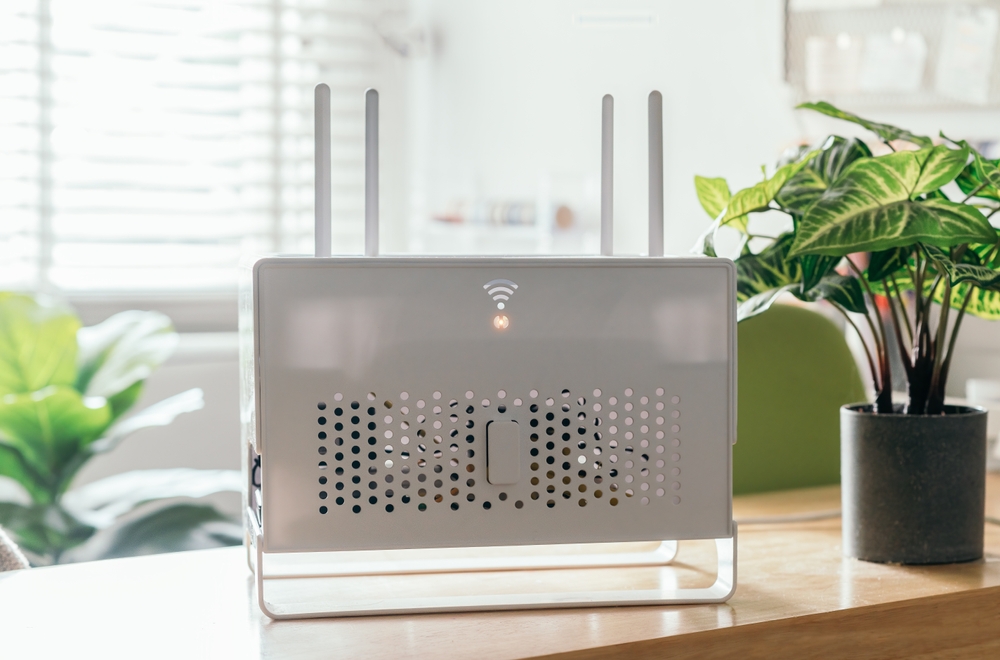If an unauthorized person gets access to your Wi-Fi network, they pose a serious security threat to your online privacy and can use your internet to perform illegal activities. That’s why it’s important to protect your router and home network with a strong Wi-Fi password. Here’s what you need to know.
Your Wi-Fi Password Should Be Long and Use Special Characters
Wi-Fi networks are susceptible to brute-force attacks, which use trial and error to break into your network and gain access to your data and devices. By using such methods, thousands of passwords are fired at a Wi-Fi network until one eventually allows access. That means shorter and simpler passwords are easier to break than longer and more complex ones.
The good news is that adding more length and complexity to a password can make it exponentially more challenging for any intrusion. “Apple” is a very easy password to crack. “A#t$8” is the same length but far less likely to be among the first combinations that hackers try. And “A5di9#vcjk$89%” is long and doesn’t use common strings of characters, so it’s much more secure.
You should have a longer password that contains a combination of uppercase and lowercase letters, symbols, and numbers to maximize Wi-Fi network security. Most experts recommend having a Wi-Fi password that is more than eight characters long. Some government agencies with highly sensitive data require their employees to have passwords of at least 15 characters. Symbols and numbers in a password further mitigate the threat of data theft, phishing, and other malicious attacks.
Avoid Common Words or Personal Information
The point of creating a secure password is that no one should be able to guess it, which means you should stay away from common words. Passwords such as “mypassword” or “12345” are easy targets. Using personal information in your password also isn’t a great idea, since someone could find that information online.
The most commonly used personal information in Wi-Fi passwords includes birth dates, usernames, street addresses, and pet names. If your password is straightforward, it may not require sophisticated hacking methods to gain access, since someone could guess it in a few attempts. In addition to creating a strong password, you can also secure your Wi-Fi network by upgrading the firmware and limiting the devices connected to it.
And there’s one more piece of bad news, I’m afraid: Hackers are familiar with the practice of using certain special characters as letters, and they also know that many people just put special characters before or after their usual strings of characters. That means that brute-force attacks will check things like “@ppl3” and “apple#”, not just “apple.” You’ll have to get a little more clever than that to stay safe.
Change the Default Password, Then Change Passwords Again Regularly

Most routers or gateways have a default password built in during manufacturing. To allow easy access during setup, this password is extremely simple. A common mistake by users is to keep using the router’s default password. Manufacturers provide the default password in manuals and online, so it’s readily available and an easy target for a malicious attacker.
Although potentially limited, your router’s signal may still extend outside your home. Not only can a hacker gain access to your internet connection through the default password, they can also change it, locking you out of your internet connection. Once accessed, they can download viruses or malware into your network or devices or use your internet connection for illegal purposes. The best routers make it easy for users to change their password through the router console or mobile app.
Passwords are always more secure when they’re fresh, so be sure to change your password occasionally (experts say every three months is ideal). And, of course, you should never use the same password for multiple devices or accounts.
Strengthen Your Router Admin Account Password
Most routers have separate login credentials for the router’s admin account, which is used to make configuration changes. Upgrading the admin account to a strong password will help further strengthen Wi-Fi network security. Most routers have a simple username and password as default, so you need to manually change the credentials to make it harder for hackers or anyone looking to gain unauthorized access to your Wi-Fi network.
How Can I Remember My Wi-Fi Password?
With all of these complicated rules and frequent changes, your password should be very secure. But it might be too secure if you can’t remember it yourself! How can you avoid this problem?
Use a Password Manager
The best way to remember passwords is not to remember them at all. When you use a password manager, you only need to remember a single password to access all your other passwords. Using a password manager is one of the top cybersecurity practices, but only 39 percent of consumers actually use one.
A major advantage of using a password manager for your Wi-Fi network and other online accounts is that it allows you to create long, complex passwords without worrying about remembering them. The password manager will store the password for you. Some password managers are also built to automatically generate complex passwords. By using the generated password and saving it in the manager account, you no longer need to remember a million passwords. That means not all your accounts are compromised even if one password gets hacked.
Of course, you need to be extra careful with the password you use for your password manager application — that’s what you’ll rely on to guard all of your other passwords! But putting your passwords all in one place isn’t as dangerous as it seems, as long as you have a secure main password. And it will encourage good habits, like regularly changing your password and using highly secure passwords, because your password manager app will make these good ideas feel like much less of a chore.
Share Your Wi-Fi Password Electronically

There’s no need to write down or message your Wi-Fi password when you can easily share it electronically through your phone or computer. If you have a guest at your home or office, for example, you can share your password electronically, so they can connect their device to your Wi-Fi network. Most types of devices won't be able to see the password, keeping it safe. Either way, it’s best to share Wi-Fi passwords only with people you trust.
It’s easy to share a Wi-Fi password on an iPhone or Android device. You don’t have to remember and recite your password if you can just share it with visitors electronically!
Write It Down (Yes, Really)
If you work for the CIA, you probably should not write your passwords down. But here’s a funny tip for the rest of us: Your desk or the back of your router is a surprisingly safe place to jot down your password. When we worry about hackers, we worry about folks online — at the closest, they might be sitting in a van outside. Having a password jotted down on a Post-it in a drawer inside of your home is not as silly as it sounds.
Of course, you’ll need to use common sense. If you have roommates, be careful. If you have a giant window next to your desk, don’t display a note with your password written on it. Never put your password in your pocket or wallet, and don’t leave the house with it. And don’t write “Wi-Fi password” on it — even if someone finds it, you shouldn’t tell them what it is. Finally, be very aware of what passwords you might have written down in your house — you’ll need to change them all immediately if you are ever the victim of a break-in.



